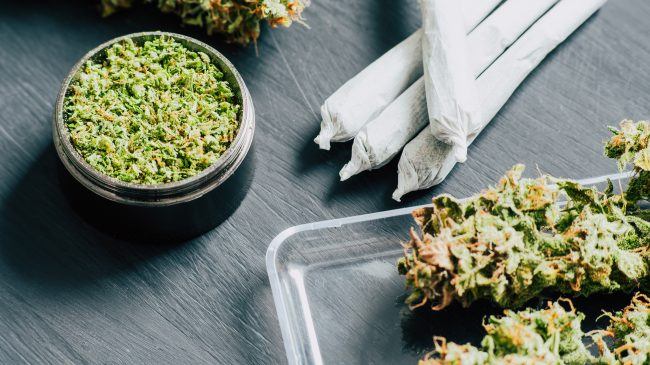News and Opinion
There are still concerns over the increasing potency of marijuana and the impact it may have on users.
California State Treasurer Fiona Ma publicly called out the state’s high cannabis taxes and burdensome regulations, saying, “…an estimated $8.7 billion is spent in our illegal market due to high taxes and a refusal by most cities to allow licensed shops, making it cheaper and easier for people to buy from illicit dealers.”
A new study by University of Washington scientists will seek to uncover whether cannabis use is safe during pregnancy or not.
There are some in Oregon who think the oversupply of marijuana from the legal market is fueling black market operations, but federal laws, taxes, other legal complications are major contributors to the black market activity.
Pennsylvania is set to expunge 30 million criminal records of low-level offenders over the next 12 months.
Harm reduction beats the drug war as a response to addiction.
A Massachusetts mayor was arrested and charged with extorting marijuana businesses in exchange for licenses and operations.
Legislation, Regulation, and Markets
The global pharmaceutical industry is investing heavily in and preparing for the impending growth in demand for medical marijuana.
The Drug Enforcement Agency (DEA) has been ordered by a federal court to fulfill its 2016 policy of approving more suppliers for research purposes after the agency engaged in “unreasonable delays.”
Maine looks to Portugal’s decriminalization experience for inspiration in expanding it’s already robust harm reduction programs.
Businesses in California are offering mixed approaches to drug testing in the workplace, with some giving up testing altogether.
The FDA is updating the graphic images placed on smoking warnings, but the attempt is unlikely to actually reduce smoking.
Florida Gov. Ron DeSantis signed a bill expanding needle exchange programs.
A roadside THC testing device used in Canada is being challenged in court over its ability to detect impairment.
British Columbia is selling less marijuana than expected due to lagging approval of licenses.
The Substance Abuse and Mental Health Services Administration, in its largest policy change in recent history, will now make more patient data available in prescription drug monitoring programs, including information about opioids.
A new restrictive law in Illinois tells cannabis growers how much water and energy they are allowed to use.
Evidence
A new analysis from RAND suggests that cannabis legalization has in aggregate reduced the flow of money to illicit marijuana operations in Washington state.
A new study finds that crime rates dropped in neighborhoods where marijuana dispensaries opened.
Pew examines how why estimating the demand for recreational marijuana is a difficult and unpredictable venture that has thus far been somewhat inaccurate.
Using data from over 140 sellers, a new paper seeks to establish the price of cannabis on the dark web.
The University of Michigan’s annual national study suggests that cannabis use by US college students is at a 35-year high.
New data about Colorado’s cannabis market has been released.
An online audit found that nearly 3,000 illegal cannabis businesses were found in California, dwarfing the number of legal dispensaries.

